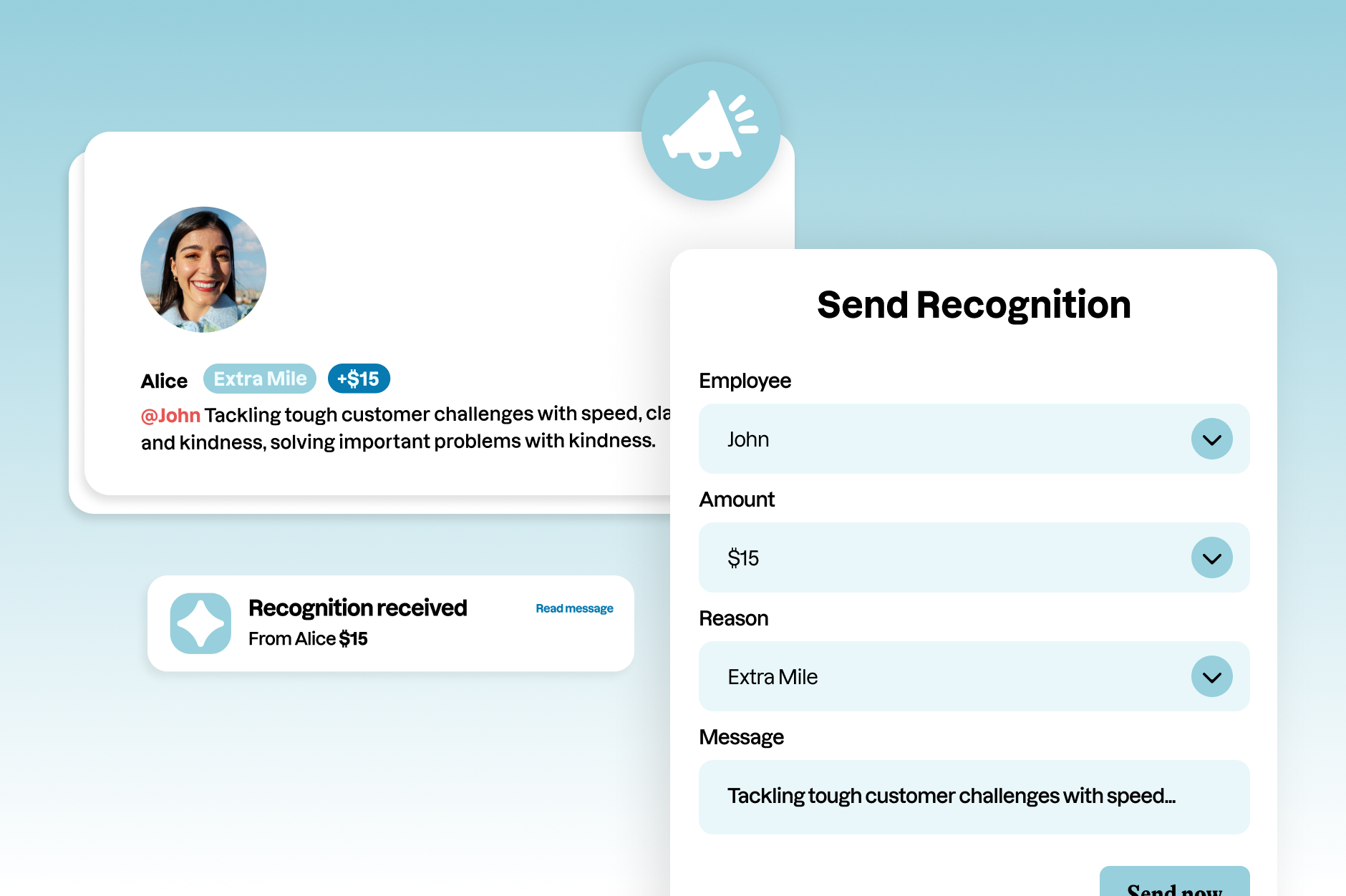Blogs
The Hidden Costs of Gift Card Breakage: Are You Losing Money?

Rewarding or recognising employees with a gift card feels like a no-brainer. Gift cards are preferred over physical gifts, food gifts and extra vacation days, are rated the “best” or “good” rewards by the majority, and give your team autonomy over how and when the gifted funds are spent. So, what has brought gift cards under scrutiny in New Zealand’s Parliament over recent years? It all comes down to breakage and if your company has ever distributed a gift card, you’ve already succumbed to its hidden costs.
What is gift card breakage?
Gift card breakage refers to the portion of a gift card’s value that never gets redeemed. This can happen when cards are lost, forgotten, only partially used, or expire before being fully spent, especially if the card is for a niche store with no immediate need for the item or service. The result? Your employees miss out on the benefits of the gift card, wholly or partially, while your company bears the full cost (and often more).
While breakage might appear to be a minor issue affecting only employees, the financial impact on businesses is significant. Each year, NZ companies invest millions into gift cards as part of their rewards, recognition and incentive programs. Yet millions of dollars in expired or unused gift card value remain. To put it in perspective:
- One in five Kiwis are currently sitting on an unused gift card
- Global estimates show up to 20% of gift card value is never claimed
- The average Kiwi has $72 in unused credit (spread over three cards), equating to a national loss of around $267 million in unspent balances
Another catch in the breakage equation is that organisations still pay the full Fringe Benefits Tax (FBT) on all employer-provided gift cards with an unspent balance. This means even more money is spent, but less value is tangibly delivered to an employee. In this way, breakage is a significant financial inefficiency for companies that is rarely measured, often misunderstood, and seldom addressed — an interesting occurrence in a time where many companies are investing heavily into both optimising their accounting systems and improving employee retention and satisfaction.

Christmas at John’s Building Solutions
With 200 employees, John’s Building Solutions issued each employee a $500 gift card for Christmas. Investing $100,000 into gifting, John expects employees will receive $100,000 in value. In reality, using global breakage estimates, up to $20,000 may never be spent. The unspent funds are retained by the gift card company, adding to their bottom line. Meanwhile, John still pays FBT on the full amount. Neither the unused funds nor the tax are recoverable.
Curious how your numbers compare? Try our Gift Card Breakage Calculator.
The hidden costs of breakage you’re already incurring
Breakage isn’t just a minor nuisance. It’s a budget inefficiency that impacts your team, your systems, and your outcomes. Here are three of the biggest hidden costs:
1. Your wasted resources
Breakage is, at its core, a misallocation of funds. The money you budgeted to reward employees, strengthen loyalty or show you value your team ends up partially unspent and unrecoverable, instead of being redirected into higher-impact areas such as professional development opportunities, additional rewards or recognition initiatives, wellbeing programs, or reinvestments into the business to support growth.
You’ll also incur resource costs in sourcing and distributing the gift cards – especially with remote or hybrid teams now being the norm for many companies.
2. Employee morale
When gift cards are lost, expire, or otherwise can’t be used, the emotional impact is weakened, especially when compared with other ways the funds could be spent. Choosing a system prone to breakage means accepting that up to one in five employees will miss out on the full benefit of your gesture.
3. Fringe Benefits Tax (FBT)
FBT applies to the full value of an employer-provided gift card, not what’s actually redeemed. That means if the card is lost or partially used, you’re still required to pay tax on the full face value. And following Inland Revenue’s April 2025 QWBA document - QB25/07, “open loop” gift cards like Prezzy are now treated as cash equivalents, meaning PAYE also applies in some instances.
Learn how Extraordinary’s integration with TaxLab solves FBT compliance challenges.
Traditional gift card models are outdated and costly
It’s easy to overlook their flaws beyond breakage. In a time where transparency, optimisation and genuine value are prioritised, it’s worthwhile considering several of the associated practical challenges:
- Delivery delays diminish the impact of timely recognition
- No employer branding on most cards – employees remember the store, not the gesture
- No digital trail makes it difficult to monitor or recover lost cards
- Manual administration, especially painful at scale
- Limited usability, especially if cards are tied to niche merchants
Perhaps the most significant flaw in the traditional gift card model for businesses is the invisibility of breakage, remaining largely uncaptured from an accounting perspective. For organisations, as unspent balances are dispersed across hundreds or thousands of individual employee gift cards, the cumulative loss is rarely seen or tracked, despite having a very real financial cost.
The incidence of breakage may be increasing, too. In 2024, global giant Starbucks reported a 9% rise in unredeemed gift card balances worldwide, sitting at $1.77 billion.
Gift card breakage a hot topic in New Zealand Parliament
Breakage has been a growing issue in New Zealand’s legislative landscape. After ongoing concerns about consumer losses, the Fair Trading Act was amended to enforce a minimum three-year expiry for all gift cards from 2026.
This brings us in line with countries like Australia, although other regions like Canada, the US and Ireland have even stricter rules – some eliminating expiry dates altogether.
The message is clear: it’s time for companies to re-evaluate their gifting strategies and align with best-practice, consumer-friendly models.
Read Fair Trading (Gift Card Expiry) Amendment Bill.
New IRD ruling: Major tax change for gift cards
Expiry dates aren’t the only regulatory change impacting employers. In April 2025, Inland Revenue released tax guidance (QB 25/07) confirming that “open loop” gift cards, such as the Prezzy card, are now treated as cash equivalents when gifted to employees. This means employers must withhold PAYE on the full value of the card, just like salary or wages, regardless of whether the funds are actually spent.
This is a significant departure from previous treatment and introduces new compliance burdens for businesses. The face value of every card must be taxed at the source, even if it’s lost, partially redeemed, or never used. This erodes the perceived value for employees while increasing administration and tax costs for employers.
In contrast, closed-loop and semi-closed-loop cards, such as the Extraordinary Card, are treated as unclassified fringe benefits, remaining subject to FBT only. This means:
- No PAYE obligations
- FBT may fall within de minimis thresholds
- Lower overall tax liability
- Simpler administration and reporting
If you're using open-loop cards like Prezzy, this ruling may affect your next payroll cycle. If you're using Extraordinary, you're already exempt.
The corporate gifting overhaul: 2025 and beyond
We’re already investing in efficiency and optimisation in most aspects of business, it’s time to do the same for corporate gifting. With a focus on eliminating wastage, streamlining processes and resources, and providing greater transparency and control to both employers and their employees, the future of gift cards should:
- Deliver instantly: Digital gifting means no shipping delays, lost parcels, or office admin time
- Eliminate breakage: Only pay for what’s actually used. Unspent funds can be refunded, repurposed or redirected
- Scale seamlessly: Whether you're a team of 10 or 10,000, distribution should be effortless
- Be personalised: Maximise perceived value, emotional impact, and employee engagement
- Be trackable: Get real-time insights into redemption rates and program performance
- Optimise tax: Only pay FBT on what’s actually redeemed, not what’s lost to breakage
The shift to Extraordinary Corporate Gifting
At Extraordinary, we’ve helped leading organisations across New Zealand and Australia drive better employee engagement, improve profit margins, and increase satisfaction with their rewards and gifting programs.
With the value of your traditional gift card added to each employee’s Extraordinary Card – which can be accessed and used digitally – a few of the many benefits Extraordinary provides include:
- Full fund recovery: Any unredeemed balance can be refunded or reallocated
- Breakage-free rewards: Funds are fully accessible
- FBT-efficient structures: Pay tax only on what’s redeemed, not lost
- Real-time tracking: See redemption, usage and impact instantly
- Flexible redemptions: Funds can be spent across multiple categories, not just one store
- Personalised experiences: Make every gift feel relevant and valued
These changes aren’t just about compliance or cost savings. They represent a smarter, more intentional way to deliver value through gifting that future-proofs your organisation against further legislative changes around gift card issuing and use.

What’s breakage costing you today?
Corporate gifting doesn’t have to be wasteful. In fact, it can be one of your most effective tools to drive culture, loyalty and ROI, when done right. To help businesses quantify the real impact of breakage, we've developed the Breakage Calculator Tool. A simple way to estimate the value lost to unused gift card balances.
Ready to future-proof your employee rewards? Talk to our team or book a quick demo today.
Sources
https://www.businesswire.com/news/home/20221019005469/en/Research-People-Value-Holiday-Gifts-from-their-Employers-but-Many-Consider-their-Employers-to-be-Bad-Gifters
https://www.vantagecircle.com/en/blog/gift-card-incentives-for-employees/
https://www.parliament.nz/en/pb/hansard-debates/rhr/combined/HansDeb_20240731_20240731_32
https://www.stuff.co.nz/business/130908688/new-zealanders-losing-10-million-a-year-to-unused-gift-cards
https://www.marketwatch.com/story/the-bank-of-starbucks-coffee-retailer-has-1-77-billion-in-unredeemed-gift-cards-138df8f5
https://www.taxtechnical.ird.govt.nz/questions-we-ve-been-asked/2025/qb-25-07
Extra Resources








